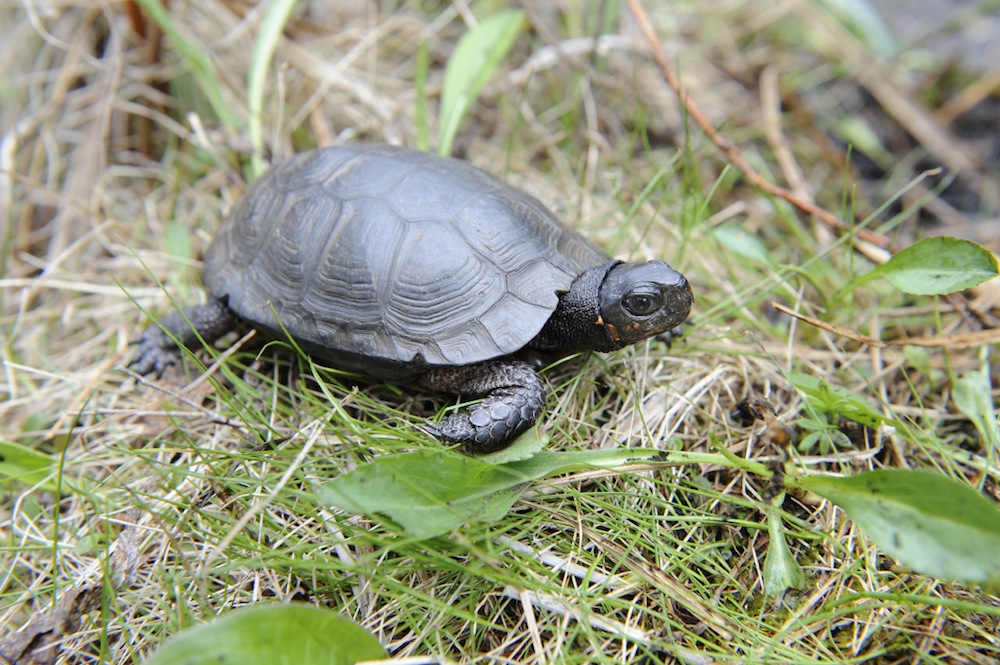America's Smallest Turtle Becoming Scarce

Get the world’s most fascinating discoveries delivered straight to your inbox.
You are now subscribed
Your newsletter sign-up was successful
Want to add more newsletters?

Delivered Daily
Daily Newsletter
Sign up for the latest discoveries, groundbreaking research and fascinating breakthroughs that impact you and the wider world direct to your inbox.

Once a week
Life's Little Mysteries
Feed your curiosity with an exclusive mystery every week, solved with science and delivered direct to your inbox before it's seen anywhere else.

Once a week
How It Works
Sign up to our free science & technology newsletter for your weekly fix of fascinating articles, quick quizzes, amazing images, and more

Delivered daily
Space.com Newsletter
Breaking space news, the latest updates on rocket launches, skywatching events and more!

Once a month
Watch This Space
Sign up to our monthly entertainment newsletter to keep up with all our coverage of the latest sci-fi and space movies, tv shows, games and books.

Once a week
Night Sky This Week
Discover this week's must-see night sky events, moon phases, and stunning astrophotos. Sign up for our skywatching newsletter and explore the universe with us!
Join the club
Get full access to premium articles, exclusive features and a growing list of member rewards.
The smallest turtle in North America is getting more and more scarce, and researchers are banding together to find out why.
At 4.5 inches (11.4 centimeters) long, the North American bog turtle, or Glyptemys muhlenbergii, is the smallest turtle species on the continent. It can be found in marshes across the eastern U.S., but wildlife managers in the Northeast have noticed higher-than-average rates of bog turtle deaths over the past few years, according to the Wildlife Conservation Society (WCS). [Image of smallest turtle]
Along with state and federal wildlife agencies, WCS is beginning a bog turtle checkup in search of a cause for these mysterious deaths. Researchers will conduct physical exams on wild turtles and take blood and fecal samples for analysis.
"We're conducting a broad screening in order to identify a cause or causes for the increase in bog turtle deaths," Bonnie Raphael, WCS's Department Head for Wildlife Medicine, said in a statement. "This information will be used to help determine if these recent losses are attributable to infectious disease, environmental perturbations or other factors."
The bog turtle is listed as "threatened" by the U.S. government and as "endangered" in New York, Massachusetts and by the International Union for Conservation of Nature. According to the New York Department of Environmental Conservation, the main threats facing bog turtles are loss of habitat to development and the illegal pet trade. Pesticides and agricultural and industrial run-off may also threaten the turtle's habitat and food supply.
You can follow LiveScience senior writer Stephanie Pappas on Twitter @sipappas. Follow LiveScience for the latest in science news and discoveries on Twitter @livescience and on Facebook.
Get the world’s most fascinating discoveries delivered straight to your inbox.

Stephanie Pappas is a contributing writer for Live Science, covering topics ranging from geoscience to archaeology to the human brain and behavior. She was previously a senior writer for Live Science but is now a freelancer based in Denver, Colorado, and regularly contributes to Scientific American and The Monitor, the monthly magazine of the American Psychological Association. Stephanie received a bachelor's degree in psychology from the University of South Carolina and a graduate certificate in science communication from the University of California, Santa Cruz.
 Live Science Plus
Live Science Plus










